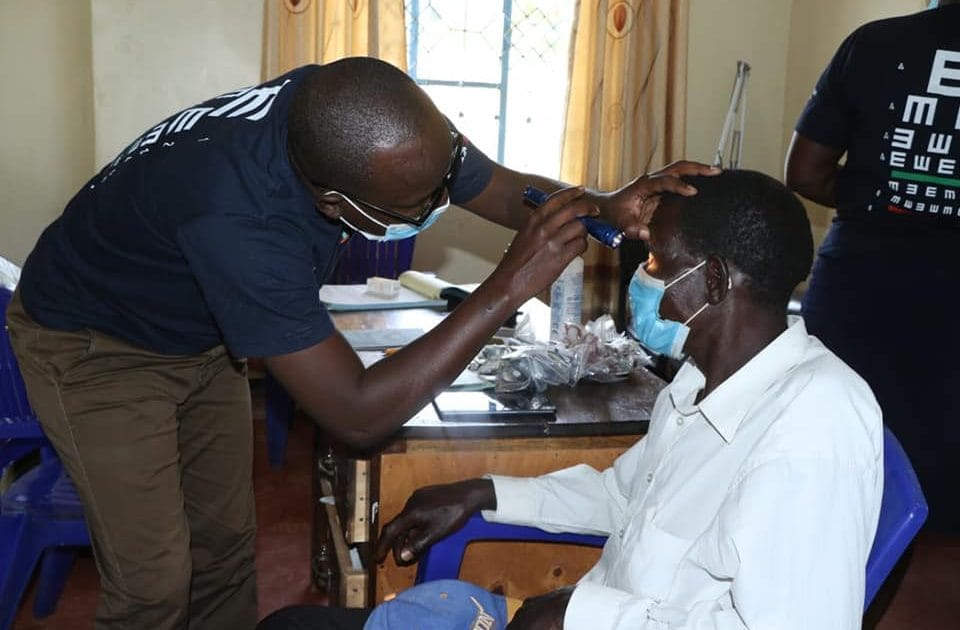
An eye specialist doing eye-check up for a patient. Residents in Marsabit County are at high risk of getting Conjunctivitis allergy owing to the dusty situation in the area. Photo: Ministry of Health.
Students in Saku Constituency, Marsabit County, are at a high risk of developing allergic conditions related to the eyes, Conjunctivitis allergies. According to the Ministry of Health, Conjunctivitis is the inflammatory of the conjunctiva, a transparent membrane that covers the white part of the eye and the inner eyelid.
According to Dr. Adan Issak, an eye specialist at the Marsabit County Referral Hospital, the presence of dust and strong sunlight in Saku, is a major contributing factor to Conjunctivitis allergies.
Speaking during an interview with a local radio station, Issak said some schools that he has visited in the area during organised eye clinics screening, many students reported cases of Conjunctivitis allergies, which he says need immediate attention and call of action.
“We report at least 10 patients with Conjunctivitis allergies, this clearly indicates that the rates are high. Once we do school screenings, many students are diagnosed with Conjunctivitis allergies, following exposure to dust in the classrooms and playgrounds. Of the schools I have screened, 80% of the students have Conjunctivitis allergies, with even worse situations that the children have itched until the sections around their eyes have turned black,” Issak explained.
Issak further stated that apart from students, the youths and the elderly especially women, who are using makeup, are at a high risk of getting Conjunctivitis allergies, urging them to use the makeup products in reasonable amounts and proportions, as well as other beauty ornaments and products used around the eyes.
“Ladies that use cosmetic, ensure that the cosmetics that are used around the eyes have a sticker to show that they are original, look for KEBS stickers, because some are fake products, also use these products in proportionate amounts, avoid over using and constant use of eye-pencil,” he further explained.
He further mentioned the most common symptoms that residents can detect the presence of Conjunctivitis allergies are frequent itchy eyes, watery and red coloured eyes. He called upon the residents to ensure that they stay in a clean environment.
“Some of the objects that are foreign to the eyes like dust, use of cosmetic eye products in women makes the eyes turn red, watery eyes and itchy eyes are most common symptoms of Conjunctivitis allergies,” Issak mentioned.
However, Issak stated that the disease is preventable, and urged residents to visit health facilities once they start experiencing any unusual change in the eyes. He further urged residents to avoid itching the eyes with bare hands but instead use a clean handerkerchief to clean them.
“Conjunctivitis allergies can be prevented, it is very treatable that should not give people much worry. Some of the ways to prevent is to ensure you do not touch you eyes frequently, when itching, fold a piece of clean cloth and use it to clean the eyes and most importantly ensure we have properly cleaned our houses to remove dust,” he advised.
His calls come, as residents specifically breastfeeding mothers, have been urged to exclusively breastfeed” their babies on breastmilk for six months before introducing them to foods, as well as maintain high standards of hygiene in their residential homes.




